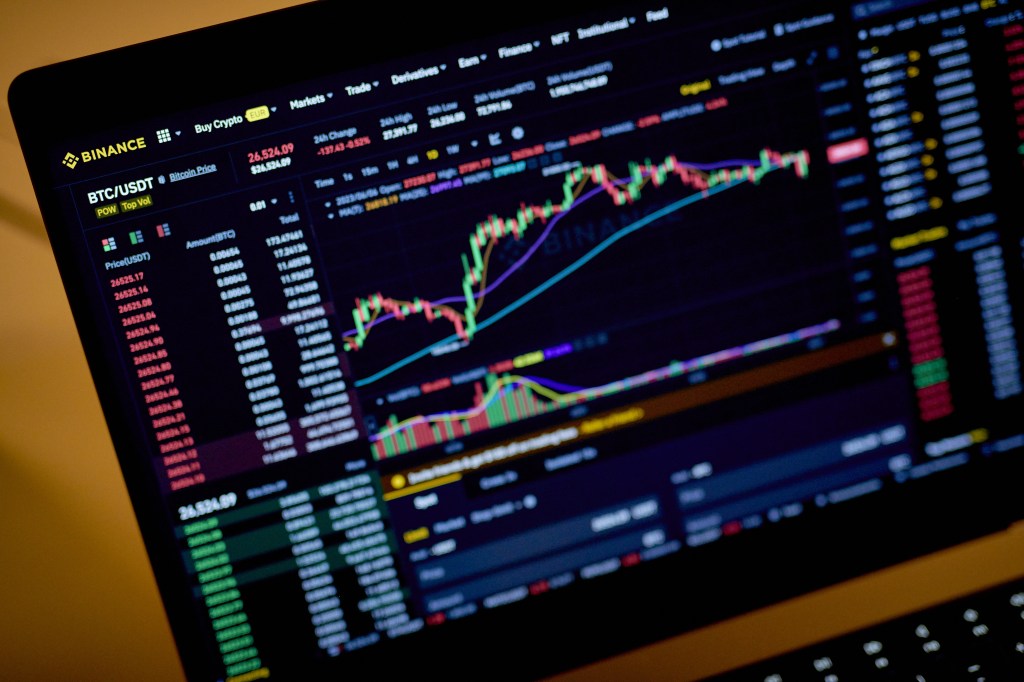
Apple has pulled apps of at least nine crypto exchanges, including Binance and Kraken, from its App Store in India, less than two weeks after most of these global firms were flagged for operating “illegally” in the country. Financial Intelligence Unit (FIU), an Indian government agency that scrutinizes financial transactions, late last month issued show cause notices to nine crypto firms and alleged that they weren’t compliant with India’s anti-money laundering rules.
FIU had asked India’s IT Ministry to block websites of all the nine services in India. Other exchanges whose apps have been pulled are Huobi, Gate.io, Bittrex, and Bitfinex. Bitstamp, another offending exchange named by the FIU, was still operational on App Store in India, though the eponymous app of OKX had also disappeared.
The apps are still listed on the Google Play Store in India and their websites are also still accessible in the country. Users who had already installed the apps on their devices can continue accessing them.
Apple didn’t respond to a request for comment. In a message Wednesday evening, Binance assured existing customers in India that their funds were safe.
“We are working hard to engage in constructive policy-making that seeks to benefit every user and all market participants,” the top crypto exchange wrote to customers. “We continue to bet big on India as a leading web3 market and we are exploring all avenues to establish a long-term sustainable business in India.”
Many Indian traders have switched to global cryptocurrency platforms in recent quarters in an apparent move to evade taxes. India began taxing virtual currencies last year, levying a 30% tax on the gains and a 1% deduction on each crypto transaction. India-based crypto exchanges, including a16z-backed CoinSwitch Kuber, B Capital-backed CoinDCX and former Binance partner WazirX, continue to require rigorous know-your-customer verifications before onboarding new users, but the same hasn’t been true of many global platforms. (Trading volume on WazirX has dropped by a staggering 97% in two years partly because many traders have moved to global apps.)
“CoinSwitch and CoinSwitch PRO, as well as several other Indian VDA exchanges, are already compliant with India’s PMLA requirements for VASPs, and there is no reason why offshore exchanges shouldn’t do the same, should they wish to do business in India,” Ashish Singhal, co-founder and chief executive of CoinSwitch, wrote on X. “Offshore exchanges should actively consider registering with the FIU-IND and comply with India’s AML and CFT measures. This is also better for consumer protection in India since there will be greater regulatory oversight of the ecosystem.”
The Indian cryptocurrency exchanges CoinDCX and CoinSwitch Kuber had previously cautioned the New Delhi government that its new taxation policy on crypto would lead many users to shift to decentralized exchanges or seek out noncompliant services. On Tuesday, CoinDCX announced that it would provide rewards to customers who transfer their crypto assets from global exchanges to its India-based platform.
India has historically taken a tough stance on cryptocurrencies and the companies that enable their trading. The Reserve Bank of India implemented a ban on cryptocurrencies in the country about five years ago. While this ban was eventually struck down by India’s Supreme Court, the central bank has persisted in advocating for outlawing crypto since then and its top officials have likened the virtual digital assets to a Ponzi scheme.
Coinbase, another popular global crypto exchange, stopped onboarding new customers in India last year. Coinbase chief executive Brian Armstrong alleged in 2022 that the firm was facing “informal pressure” from the central bank in India.

